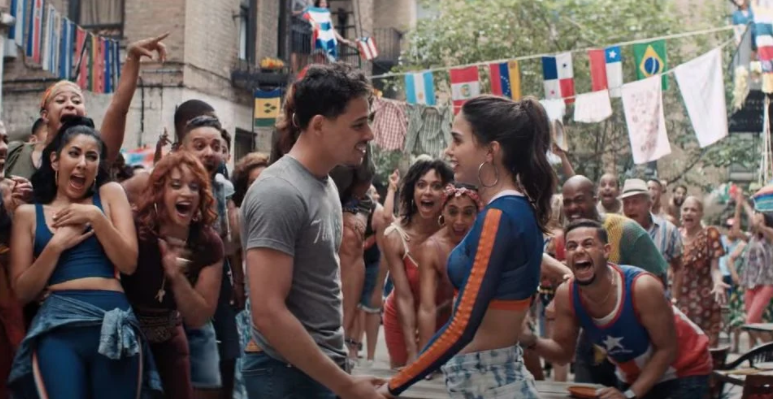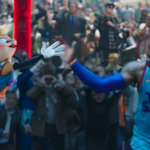Despite earning $11.5 million on its opening day, Lin-Manuel Miranda’s musical drama “In the Heights” has faced criticisms for its apparent lack of dark-skinned Afro-Latino representation in the film.
Several internet users expressed their disappointment on Twitter as the 2008 musical-turned-blockbuster was found guilty of white-washing, most notably with its lead Afro-Latina actress Leslie Grace who plays Nina Rosario in the film.
Even before “In the Heights” received quite the controversy, director Jon M. Chu was called out for his stereotyping towards South Asians as domestic workers in his previous film, “Crazy Rich Asians.”

Hatian-American actress, director, and producer, Numa Perrier tweeted a video from The Root’s interview with ‘In the Heights’ director Jon M. Chu and cast members Leslie Grace, Melissa Barrera, and Gregory Diaz IV.
https://twitter.com/missnuma/status/1404065278695247874?s=20
The tweet—which has now gone viral— had many dark-skinned Afro-Latinx folks calling out how the film’s representation is far from reality of the Black Latinx culture.
"i just want to point out that there were a lot of dark-skinned people at the auditions and they just didn't get picked" lmaooo https://t.co/xHEjJuxZTI
— kyndall🪩💐 (@kyndallrene) June 13, 2021
https://twitter.com/Annette69508797/status/1404205364158009347?s=20
I haven't seen the movie but how do you not have majority Black Latino cast in a movie about WASHINGTON HEIGHTS?
— Library Lioness (@library_lioness) June 13, 2021
https://twitter.com/hollyhoodlegend/status/1404441036936601604?s=20
The problem with Colorism
Colorism is an issue among people of color, particularly in dark-skinned communities, since it is a kind of discrimination in which individuals with lighter complexion are treated better than those of the opposite.
At the same time, colorism is a byproduct of racism, remarkably in the United States. It preserves white beauty standards and favors white people in oppressive institutions such as in the media.
Similarly, the entertainment industry in the Philippines is distinctively full of light-skinned half Filipinos. Skin whitening brands also leech on the idea that beauty only comes in being white or light-skinned.
Aside from the Philippines, our neighbors from Taiwan, Malaysia, South Korea, and China have also emphasized the beauty of having white or pale skin.
Back in 2018, Asia Jackson, an actress of both African-American and Filipino descent, shared on twitter how she was bullied for having dark skin.
Kids told me I couldn’t join their games because I was maitim. I couldn’t have a single conversation with anyone without someone mentioning how dark I was. Complete STRANGERS called me “bruja” because of my hair texture. Imagine the effects that all of this has on a child. pic.twitter.com/Diez5JuZvM
— Asia Jackson (@aasian) May 31, 2018
She also mentioned on her Twitter thread that colorism is systemic; skin-tone bias is real and can bring dangers to one’s life.
dark skinned people are killed extrajudicially and imprisoned at higher rates whether the bias is explicit or not. Colorism is systemic. I created this hashtag not only to celebrate the diversity of Filipino beauty, but also to start conversations about colorism…
— Asia Jackson (@aasian) May 31, 2018
Culture appropriation is critical, particularly in the media. The struggles and identity of a specific culture or community where an individual belongs should not be whitewashed or stereotyped— especially in these rare occasions where POC have the opportunity to share their culture on screen.
________
DISCLAIMER: All views and opinions expressed in this post are solely those of the contributor/s and do not represent those of InqPOP! and INQUIRER.net. The InqPOP! staff assumes no liability for any error in the content of this material. Got something you want to share to the world? Get a chance to publish your awesome creations and share it to the world through our InqPOP! Creator Community program. Send us your stories, videos, photos, fan fic, and even fan art at [email protected]
For more details, read the POP! Creators FAQ page.


